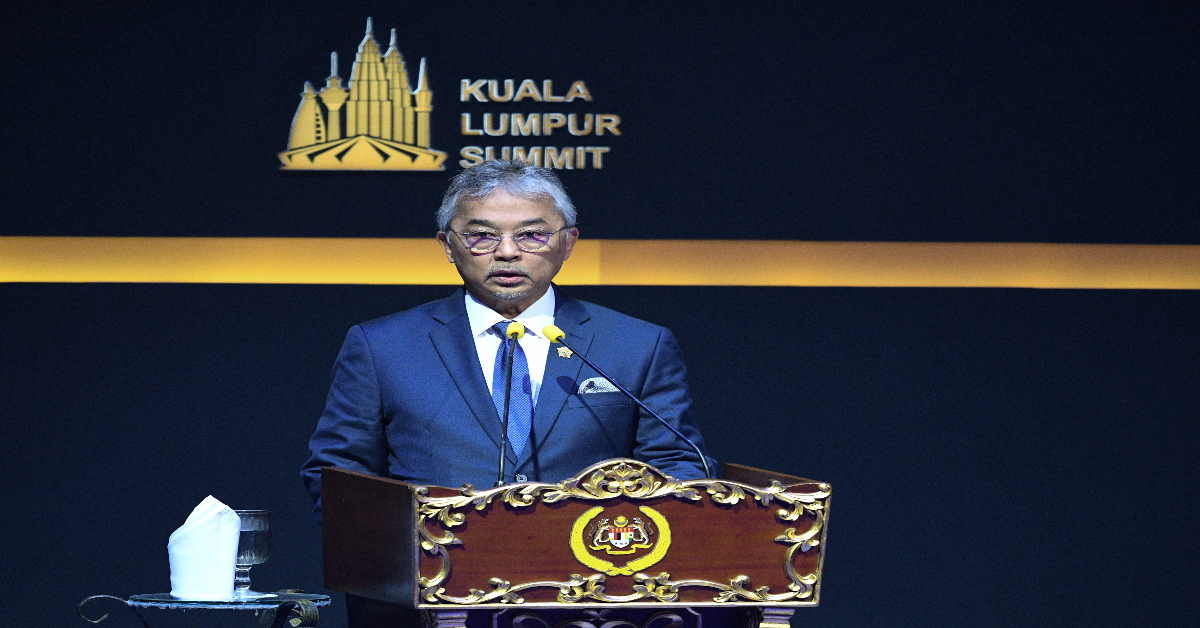Yesterday, Malaysia’s Dr Mahathir Mohamad did something many in the country could not have expected – he resigned as the country’s prime minister. After subsequently delaying his exit as the country’s administrator, the shock most of the country was feeling was understandable.
Following Dr Mahathir’s resignation, it was up to His Royal Highness, the Yang di-Pertuan Agong (King of Malaysia) to decide whether to accept his resignation or not. The King did. But what happens next?
A constitutional expert from Malaysia’s Universiti Malaya, Professor Dr Shad Saleem Faruqi, was quoted as saying that in Malaysia, after a prime minister resigns, the cabinet is immediately dissolved and the King would have to appoint either a permanent or caretaker prime minister.
“The prime minister and the cabinet are a collective responsibility. Once the prime minister resigns, the Yang di-Pertuan Agong has to appoint a new prime minister – be he a permanent or a caretaker. There is no time-frame for the King to do so," Shad Saleem told local media.
While there might not be a time-frame for the King to appoint a new prime minister, soon after Dr Mahathir’s shocking news, the King did not waste any time in choosing an interim prime minister – Dr Mahathir himself.
Under Article 43 of Malaysia’s Federal Constitution, it is now up to Dr Mahathir as interim prime minister to advise the King on who to appoint as members of the interim cabinet. This is what is currently taking place, but it does not end there.
Dr Mahathir, as interim prime minister, also has the discretion of advising the King to dissolve parliament and call for a general election. Meanwhile, if the prime minister ceases to command the confidence of the majority of the house of representatives, Article 43 also states that the prime minister will then have two choices: (1) to convince the King to dissolve parliament (2) resign.
This could be a very real scenario considering several events that occurred before Dr Mahathir handed in his resignation. First, a significant party in the ruling Coalition of Hope and Dr Mahathir’s own party – the Malaysian United Indigenous Party (PPBM) - left the ruling coalition. Secondly, several members of Parliament from another significant party in the Coalition of Hope – the People’s Justice Party (PKR) – also left the coalition.
Article 55 of the Federal Constitution states that if Parliament is dissolved, a general election must be held within 60 days and a new Parliament must be called not later than 120 days.
In the end, whether or not the Parliament in Malaysia is dissolved or not, it will come down to seats and which side of the political sphere commands the biggest number.
Speaking of numbers, one thing for certain is that this political turmoil has affected the country’s already faltering economy.
Reports have revealed that Malaysia’s key stock index, the Kuala Lumpur Composite Index (KLCI) fell 38.94 points or 2.61 percent to 1,492.94 points – below the psychological level of 1,500 for the first time this year. At the 9am open today, the local Malaysian Ringgit fell 240 basis points to open at 4.2140/2180 against the greenback from last Friday's close of 4.1900/1940.
The country’s largest independent investment bank, Kenanga Investment Bank Research said the fissures caused within the ruling Coalition of Hope by a series of political manoeuvres from Friday to Sunday have caused damage that may have become unsalvageable.
Malaysia’s future hangs in the balance and considering the amount of twists and turns that have been occurring in just the past two days, there’s no telling what lies just beyond the horizon.
